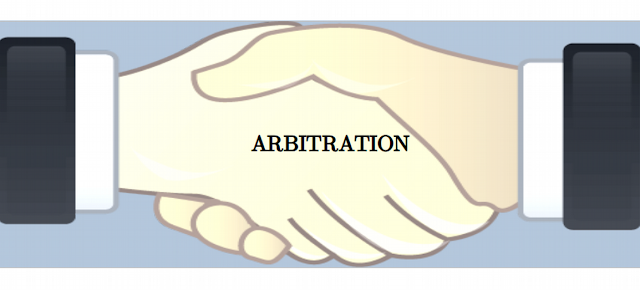Appeal Under Arbitration Act: Appealable Order u/s. 37
I. INTRODUCTION
Arbitration decision has limited grounds on which a party may challenge or appeal enumerated orders u/s. 37 of the Arbitration and Conciliation Act, 1996 (hereinafter 'Arbitration Act') passed by the court/tribunal and from no other orders. The reason why an appeal is not allowed from any other orders enumerated u/s. 37 of the Arbitration Act is to provide finality, to the parties concerned. A right to appeal is not a natural right or inherent right, it is merely a statutory right. The legislature was conscious enough while stating "an appeal shall lie from the following orders and from no others", to restrict the appeal only to sec. 37 Arbitration Act. The embargo on appeals in Section 37 is an absolute and categorical one. The Arbitration and Conciliation Act, 1996 which is a special act dealing with the arbitrations, especially limits the extent of judicial intervention inasmuch as it provides that no judicial authority shall intervene except where so provided [Canbank Financial Services Ltd. vs Haryana Petrochemicals Ltd., 2008 2 Arb LR 365].[NOTE: For Sec. 50 and 59 (Appealable orders under Part-II) of the Arbitration Act, See Fuerst Day Lawson Limited v. Jindal Exports Limited, (2011) 8 SCC 333; Sumitomo Corporation v. CDC Financial Services (Mauritius) Ltd. and Ors, (2008) 4 SCC 91; Arun Dev Upadhyaya v. Integrated Sales Service Ltd, 2016 SCC OnLine SC 1053]
II. JURISDICTION: APPELLATE COURT
The term ‘court’ mentioned under Section 37 of the Arbitration Act refers to the principal civil court of the original jurisdiction in a district, or the High Court [See Section 2(1)(e)]. On perusal of the plethora of judgment, the jurisdiction u/s. S. 37 will depend upon the subject-matter of the dispute. Only the chartered high courts exercising the civil original jurisdiction will fall under the category of 2(1)(e) [Pandey & Co. Builders Pvt. Ltd. v. State of Bihar, AIR 2007 SC 465]. Other High Courts do not have the concurrent jurisdiction with district courts hence, they cannot entertain an appeal.
Letters Patent Appeal
1. Conros Steels Private Limited (“Conros”) v. Lu Qin (Hong Kong) Company Limited (“Lu Qin”) and Others (Appeal No. 806 of 2011 in Notice of Motion No. 3709 of 2010 in Suit No. 2358 OF 2010): Order passed u/s. 8 cannot be challenged under clause 15 Letters Patent Appeal.2. Fuerst Day Lawson Ltd vs Jindal Exports Ltd., (2011) 8 SCC 333: No letters patent appeal will lie against an order which is not appealable under section 50 of the Arbitration
3. Arun Dev Upadhyaya v. Integrated Sales Service Ltd, 2016 SCC OnLine SC 1053: A conspectus reading of Sections 5 and 13 of the 2015 Act and Section 50 of the 1996 Act which has remained unamended leads to the irresistible conclusion that a Letters Patent Appeal is maintainable before the Division Bench
4. The appeal was allowed - Great Eastern Shipping Co. Ltd., v. Board of Trustees for the Port of Calcutta, (2005) 1 Arb LR 389, 397 (Cal-DB)
Whether Revision is maintainable?
As Arbitration Act does not take specifically take away the revisional power. In that scenario, the High Court would have the revisional power against the decision of a subordinate court where no appeal lies. For instance;a) The question of Jurisdiction is involved
b) The referred dispute was not part of an arbitration agreement
c) Lower Court entertained objection not raised before it.
d) Material irregularity etc.
In Short, The interference by the High Court in revision is a matter of discretion. The power of revision is an extraordinary power and should be confined to cases where the illegality and material irregularity is such as has occasioned or will occasion a substantial failure of justice.
{NOTE: For the distinction between appellate jurisdiction and revisional jurisdiction See, M/s. Sri Raja Lakshmi Dyeing Works v. Rangaswamy Chettiar, (1980) 4 SCC 259. }
Appeal to Supreme Court
Section 37(3) does not take away the power of Article 136 of the Indian Constitution. So, an aggrieved party may file a Special Leave Petition. However, it should be kept in mind the discretionary nature of SLP.III. APPEALABLE ORDERS: SEC. 37 OF THE ARBITRATION ACT
 |
APPEALABLE
AND NON-APPEALABLE ORDERS UNDER ARBITRATION ACT
|
IV. LIMITATION
The period for filing an appeal u/s. 37 of the Arbitration Act is governed by the Schedule of the Limitation Act. As the Arbitration Act is silent regarding limitation u/s. 37, therefore Limitation Act will be applicable. An appeal u/s. 37 will be governed by Article 116 of the Schedule to the Limitation Act [Consolidated Engineering Enterprises v. Principal Secretary Irrigation Department & Ors., 2008 7 (SCC) 169]


